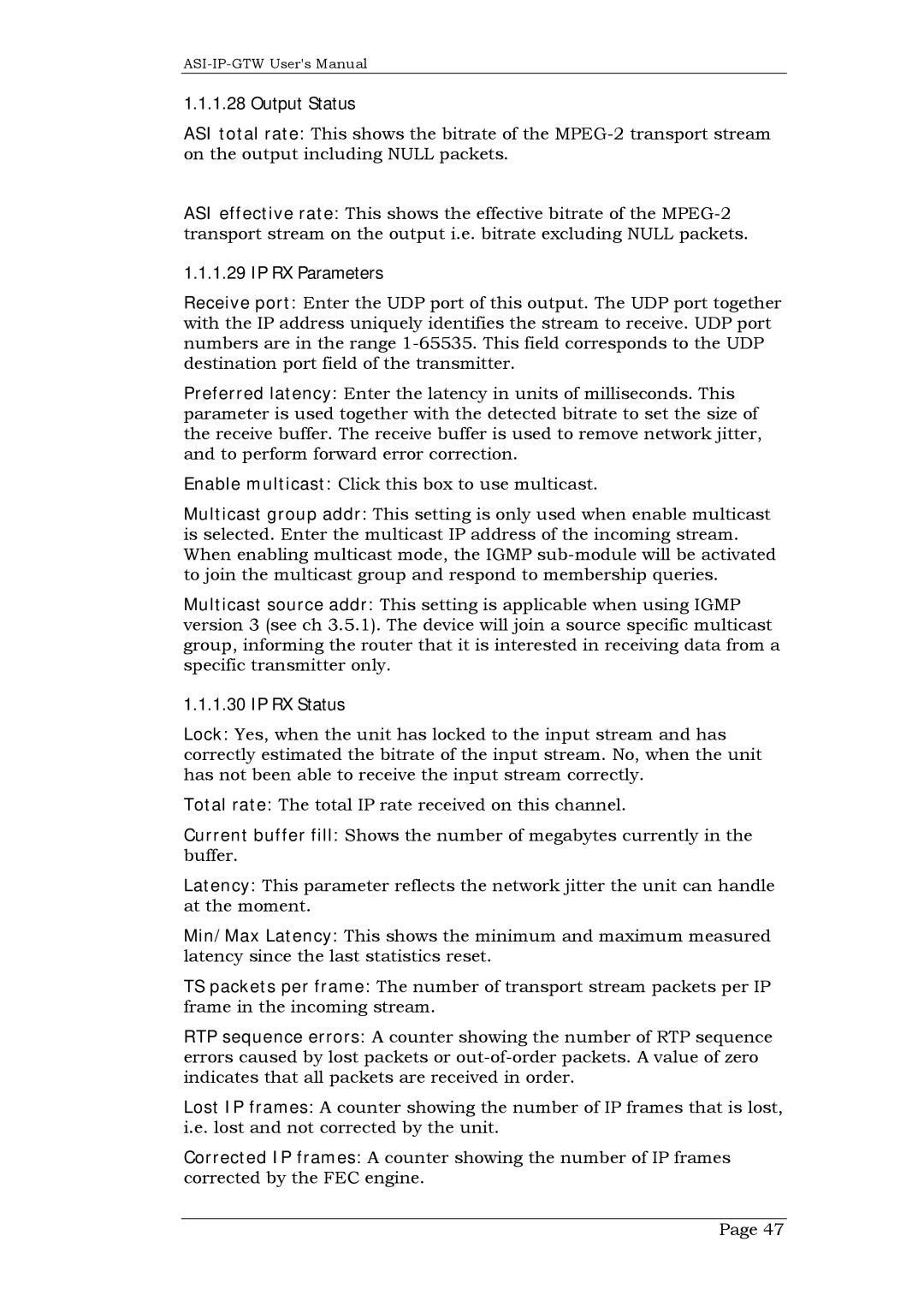
1.1.1.28 Output Status
ASI total rate: This shows the bitrate of the
ASI effective rate: This shows the effective bitrate of the
1.1.1.29 IP RX Parameters
Receive port: Enter the UDP port of this output. The UDP port together with the IP address uniquely identifies the stream to receive. UDP port numbers are in the range
Preferred latency: Enter the latency in units of milliseconds. This parameter is used together with the detected bitrate to set the size of the receive buffer. The receive buffer is used to remove network jitter, and to perform forward error correction.
Enable multicast: Click this box to use multicast.
Multicast group addr: This setting is only used when enable multicast is selected. Enter the multicast IP address of the incoming stream. When enabling multicast mode, the IGMP
Multicast source addr: This setting is applicable when using IGMP version 3 (see ch 3.5.1). The device will join a source specific multicast group, informing the router that it is interested in receiving data from a specific transmitter only.
1.1.1.30 IP RX Status
Lock: Yes, when the unit has locked to the input stream and has correctly estimated the bitrate of the input stream. No, when the unit has not been able to receive the input stream correctly.
Total rate: The total IP rate received on this channel.
Current buffer fill: Shows the number of megabytes currently in the buffer.
Latency: This parameter reflects the network jitter the unit can handle at the moment.
Min/Max Latency: This shows the minimum and maximum measured latency since the last statistics reset.
TS packets per frame: The number of transport stream packets per IP frame in the incoming stream.
RTP sequence errors: A counter showing the number of RTP sequence errors caused by lost packets or
Lost IP frames: A counter showing the number of IP frames that is lost, i.e. lost and not corrected by the unit.
Corrected IP frames: A counter showing the number of IP frames corrected by the FEC engine.
Page 47
